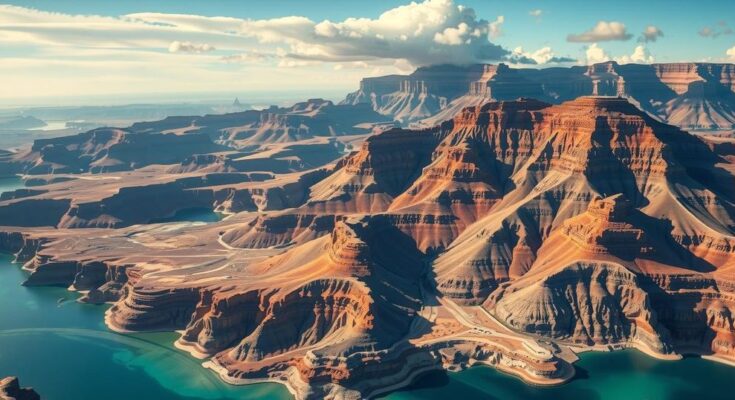Chile is a long, diverse country along the Pacific Coast of South America, stretching over 2,500 miles and featuring various climates. It is home to remarkable wildlife and stunning landscapes, from deserts to glaciers. However, the nation also faces socio-political challenges regarding land rights and is prone to seismic activity, including significant earthquakes.
Chile is a remarkable nation that extends over 2,500 miles along the Pacific coast of South America, making it longer than Europe, which measures approximately the same distance from northern Sweden to southern Spain. Home to approximately 20 million individuals, Chile boasts a diverse array of attractions, ranging from stunning beaches to the towering Andes mountains. This country is notable for its remarkable climatic diversity, featuring everything from the arid Atacama Desert in the north, one of the driest places on Earth, to the temperate fjords and glaciers of Patagonia in the south.
Chile is characterized by its incredible landscapes, which shelter a variety of wildlife that includes the Chilean condor, pumas, and foxes. It is recognized as holding at least eighteen climatic subtypes according to the Köppen climate classification system, with environmental conditions varying significantly across its length. The center of the country enjoys a Mediterranean climate while regions such as Easter Island experience tropical weather, adding to the allure of this expansive land.
The nation is also one of the most seismically active areas globally, located within the Pacific Ring of Fire. This has made Chile prone to significant earthquakes, including the unprecedented Valdivia Earthquake of 1960, which remains the most powerful on record. Despite its natural beauty and the wealth of tourist attractions, particular regions are advised to be avoided due to ongoing disputes between Indigenous Mapuche activists and the Chilean government, primarily concerning land rights. Areas particularly impacted include the coastal region between Lebu and Temuco, which may experience road closures and heightened tensions due to these conflicts.
Chile, a country stretching down the western coast of South America, is known for its unparalleled length and diverse climates, making it an exceptional place to explore for travelers and nature enthusiasts alike. The country’s geography creates a unique tapestry of environmental conditions, from the world’s most arid desert to lush temperate rainforests and icy southern glaciers. This combination of factors has fostered a rich biodiversity, as well as a range of tourist activities focused on adventure and exploration. However, beneath its allure lies a complex social dynamic, particularly regarding Indigenous rights and land disputes, which impact certain areas of the country.
In summary, Chile presents an extraordinary cross-section of natural beauty, climatic variety, and cultural richness. Its geographical length is comparable to that of Europe, encompassing a vast range of biodiversity and topography. However, potential visitors should remain aware of specific socio-political issues that may affect travel in certain regions. The inherent risks associated with seismic activity further underscore the complexities of this fascinating nation, making it both alluring and challenging to navigate.
Original Source: www.express.co.uk




